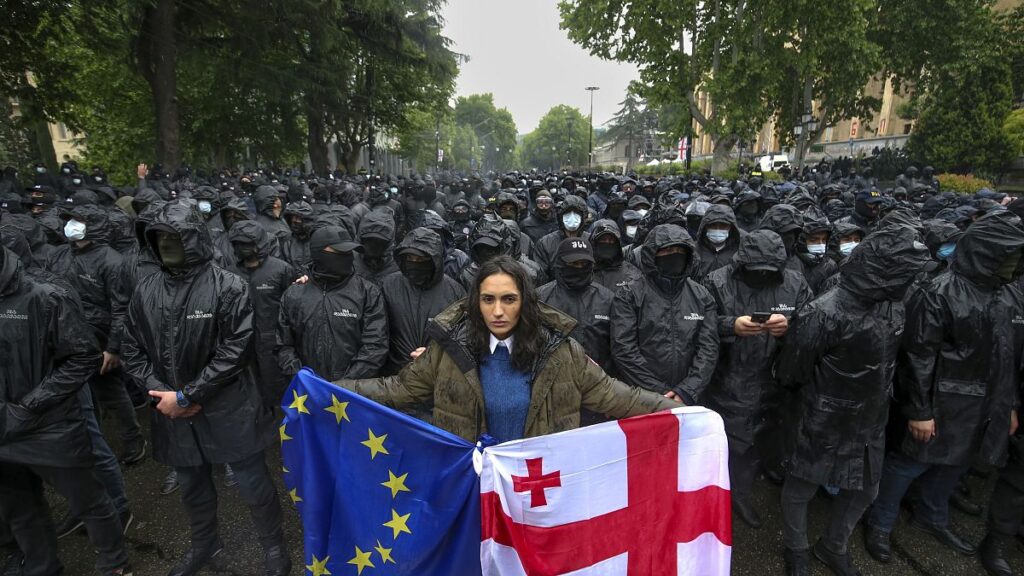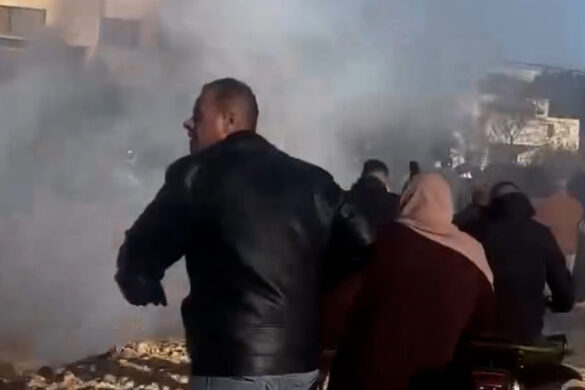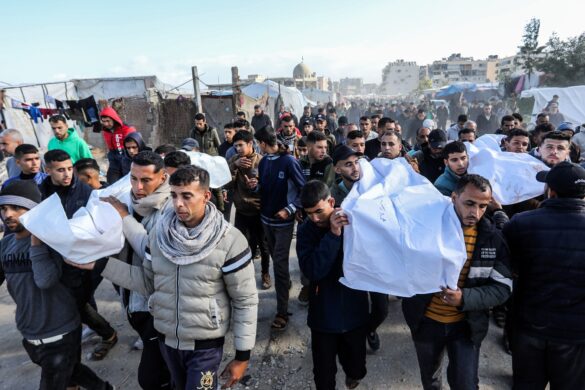High tensions in Tbilisi after the adoption by Parliament of the “law on foreign influence”: demonstrators and European capitals denounce a decline in democracy.
High tensions in Tbilisi after the adoption by Parliament at the third reading of the law on “foreign influence”.
For weeks, demonstrators have been facing the police in front of the building where the deputies sit.
The opposition denounces a law modeled on Russian legislation to repress dissenting voices.
Mariam Kukhilava, Euronews: “The demonstration is currently being dispersed by the police and the situation has become very tense and chaotic at the moment. The police are isolating the Parliament and not letting the demonstrators approach the building. They also used gas pepper spray against demonstrators, as well as water jets, and special forces are also present here.”
Within the hemicycle, the debate before the adoption of the text degenerated and several deputies came to blows.
The law requires media and NGOs partly financed by foreign funds to declare themselves as “organizations pursuing the interests of a foreign power”.
Archil Talakvadze, member of the ruling Georgian Dream party: “Citizens, society must have comprehensive information about who participates in the public policy of their country, who makes important decisions and what factors influence each between them.
The opposition denounces the influence of Russia and a decline in democracy.
Teona Akubardia, independent MP: “By adopting this law, Georgia finds itself isolated from the West and becomes even easier prey for Russia.”
Georgian President Salome Zourabishvili has warned that she will veto, but the ruling Georgian Dream party assures that it has a sufficient majority to override it.




